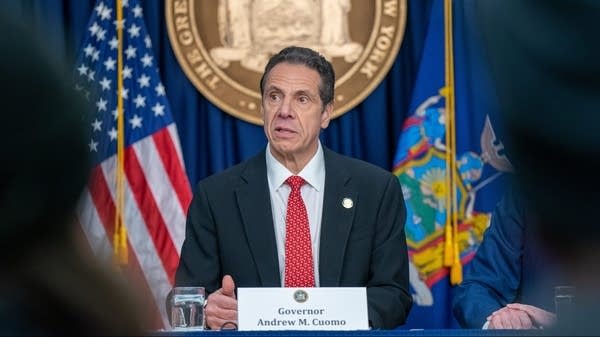COVID-19 response complicated by inequities in health insurance, sick leave

More than 27 million Americans are uninsured and millions more have health plans that cover almost nothing. That was Elisabeth Benjamin’s first concern when it became clear that the new coronavirus had arrived in the U.S.
“My first thought was, wow, this virus is coming here and we have a lot of people who are uninsured,” said Benjamin, vice president for health initiatives at the Community Service Society of New York. “And more and more people are buying skimpier plans, high-deductible plans.”
That very American reality is likely to deter many people from getting tested or seeking care, and to hamper public health efforts to monitor and contain the spread of the virus.
“That makes it difficult to identify cases and then really do the basics of good public health work, which is identifying people, making sure they’re properly treated if they need it, and then identifying their contacts,” said Michelle Ko, an assistant professor in the division of health policy and management at the University of California Davis. “All of that standard public health surveillance is made more difficult by the inequities in our healthcare system.”
One way to address that is to make testing and treatment for COVID-19 free and available to everyone, “especially the folks that are most likely to be uninsured or the people that have intimate contact with all of us — home care workers, taxi drivers, livery drivers, food handlers, restaurant workers, child-care givers,” Benjamin said. “Everyone’s health depends on that, not just theirs, everyone’s.”
The Department of Health and Human Services has designated the COVID-19 test an essential health benefit under the Affordable Care Act, meaning it is covered for those with private insurance, Medicare and Medicaid. Several states this week — including New York, Washington, California and Nevada — went further, requiring private insurers to cover all costs associated with testing for the virus, including the cost of an office visit or a trip to urgent care or the emergency room. Governor Jay Inslee also said Washington state would make testing free for those who are uninsured. And Cigna Thursday became the first private insurer to say it will waive co-pays and cost-sharing associated with testing for the virus.
Aside from free testing in Washington state, there have not yet been moves at the state or federal level to cover costs for people who do not have insurance.
Natalia Linos, the executive director of the FXB Center for Health and Human Rights at Harvard, said it’s in the government’s interest to cover all costs associated with testing for the virus, for everyone, as part of an effective public health response.
“Testing has little benefit for the individual at this stage, and so should not be a cost that is borne by the individual, it should be a community or social cost,” she said. “We’re all in it together. We all face joint risks. And the health of the weakest person, or the one who is most likely to get it, is really what’s going to determine the trajectory. So you really need to be focusing your resources on the most at-risk.”
Beyond just making testing free, it is also critical to make it more widely accessible to those who are more vulnerable, Ko said — people in rural areas, immigrants who are undocumented or have family members who are undocumented, home health aids providing direct care, those without access to transportation, people working low-wage jobs without sick pay.
While mandates that insurance cover costs associated with testing for COVID-19 are important, according to Ko it would be significantly more effective to make testing free to everyone, regardless of whether or not they have insurance, and to provide people with “a cushion in order to be tested and take the time they need.”
More than half of those working in the service industry do not have any paid sick days. By contrast, more than 90% of those working in management, business or finance do.
“There is this public health mantra, ‘if you’re sick, don’t go to work,’” Linos said. “But the implications of that are not the same for everyone. You know, if you’re in a well-paid job with a boss who understands, where you might already have a sick policy, or where they understand this epidemic, fine. But in some other places, you could lose your job.”
In New York, Governor Andrew Cuomo this week said he was amending his proposed paid sick leave budget to require employers to hold jobs for people who get sick or quarantined because of the coronavirus, and offer them sick pay.
On Friday, Democrats in Congress introduced similar legislation, to require all employers nationwide to offer two weeks of sick days in the event of a public health emergency, like the COVID-19 outbreak. Whether it will gain enough traction to become law remains to be seen.













